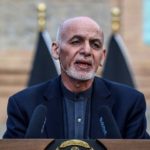The Trump administration is edging America toward the exit in Afghanistan, nearly two decades after President George W. Bush intervened in the aftermath of 9/11. The U.S. quickly dispersed Osama bin Laden’s al-Qaeda and ousted the Taliban, only to spend the following years failing to build a stable, liberal democracy centered in Kabul.
America’s extended commitment of lives and resources to Afghanistan never made sense. If there is one spot on the planet in which the US has little strategic interest, it is Afghanistan. The latter is geographically distant, landlocked among Iran, China, Pakistan, Turkmenistan, Tajikistan, and Uzbekistan.
Afghanistan is strongly tribal and socially traditional, a Muslim country ruled at the village and valley. With formal borders drawn by British officials, Afghans have strong family, ethnic, and religious ties across nations. US officials had little contact with Afghanistan prior to the 1979 Soviet invasion, which Washington used to bleed America’s Cold War adversary.
Debating “what might have been” is a waste of time and breath. In September 2001 the Bush administration targeted al-Qaeda after the group hijacked four airliners, turned them into de facto cruise missiles, and murdered some 3000 people. The administration also sought to oust the Taliban government, which hosted the group’s training facilities. Both objectives were quickly achieved.
Indeed, consumed with hubris the Bush administration vetoed any political negotiations between Kabul and the Taliban, the only way to create a stable peace. The latter reemerged and launched a full-scale insurgency. But Washington, busy in Iraq, never responded accordingly. The resistance grew until even Bush realized that he had a problem.
Thus, when Secretary of State Mike Pompeo recently said to veterans “We will not squander what they and you have won through blood, sweat and tears,” it is not clear what achievements he was imagining. Americans at home were lied to as Americans in Afghanistan died so Washington policymakers could avoid taking responsibility for failed policies.
Candidate Donald Trump appeared to understand the issue when he bulldozed his Republican opponents by forthrightly denouncing the Bush-Obama wars. He began criticizing the Afghanistan misadventure early. In a 2012 tweet he complained: “Why are we continuing to train these Afghanis who then shoot our soldiers in the back? Afghanistan is a complete waste. Time to come home!”
A year later he insisted: “We should leave Afghanistan immediately. No more wasted lives. If we have to go back in, we go in hard & quick.” He even did what seems inconceivable today, praise Obama. Said Trump: “I agree with Pres. Obama on Afghanistan. We should have a speedy withdrawal. Why should we keep wasting our money — rebuild the US!”
Since then even military officers sound more pessimistic. For instance, in 2017 Gen. Joseph Dunford, chairman of the Joint Chiefs of Staff, told Congress: “We used the term stalemate a year ago, and, relatively speaking, it has not changed much.” A year later Gen. Kenneth McKenzie, slated to take over US Central Command, opined at his confirmation hearing: “We believe that it is important to convince the Taliban that, even as we are in a stalemate, so they are in a stalemate, and they will be unable to find a path to victory on the battlefield.” This after more than 17 years of fighting.
Far more depressing are independent reports, such as those routinely issued by Sopko’s office. Financial aid was wasted or stolen. Development projects were not completed or failed to deliver. Total area contested by the Taliban was at a record. Casualties among Afghan security were rising, along with Taliban attacks on cities – including suicide attacks in the capital.
Afghan security personnel were ghosts or ineffective. For years many Afghan personnel existed on paper only. During my 2011 visit to a police training center a Marine Corps officer warned me to beware: “everyone is selling something.” An American instructor observed that he “tried” to teach the recruits, but without much success.
In his January quarterly report Sopko highlighted several important security problems. One is that “Enemy-initiated attacks from October–December 2019 were at the highest level for the fourth quarter of any year since data collection began in 2010.” Another was that “Afghan special forces conducted fewer ground operations in the fourth quarter, lower than any other quarter in 2019, and only 31% of their operations were conducted without US or Coalition assistance.”
His conclusions are necessarily more limited than in the past. So negative have been his assessments that the Pentagon started classifying data on the performance of the Afghan security forces. In February he told the Senate Homeland Security and Government Affairs Committee that most indicators “of measuring success are now classified, or we don’t collect it. So I can’t tell you, publicly, how well a job we’re doing on training.” He obviously can’t tell the public either.
High attrition rates continue to be one of the Afghan military’s biggest problems. The latest SIGAR report, issued last Thursday, noted that total reported Afghan National Defense and Security Forces personnel levels continued to fall, to 281,807 in January, 50,000 below the levels in January 2017.
As a result, Kabul has over-relied on the Afghan Special Security Forces, made up of specially trained military and police units. Noted the inspector general: “Misuse occurs when [Ministry of Defense] or [Ministry of Interior] orders the ASSF to conduct operations that are more appropriate for the conventional forces or assigns them other inappropriate tasks. Examples of misuse include using special forces to man checkpoints, hold terrain, or provide personal security for politicians or ANDSF leaders.” Such “misuse” fell last year, but then so did use of the ASSF since Taliban activity dropped during peace negotiations with America.
After nearly 20 years of American and allied occupation.
President Trump could have begun his presidency with a clean slate by announcing the coming withdrawal of US troops. Responsibility for any adverse consequences would fall on his predecessors, the authors of the failed attempt at nation-building. Alas, he surrounded himself with hawks who resisted his desire to bring home American personnel.
Apparently forgetting that he had been elected president, on their advice he instead increased troop levels, leaving even more US and allied personnel to die for nothing. Now Washington is attempting to salvage a peace settlement with the Taliban, which is dependent on unlikely agreement between the insurgents and Kabul government. This process is supposed to lead to the eventual withdrawal of foreign troops.
The good news is that the administration has begun pulling out American forces. In fact, Secretary of State Mike Pompeo said (and later denied) that the president wanted them all home by election day. However, why wait for November?
a new war, which continued as America’s presence waned. Washington always believes everything is about Washington, but that isn’t the case in Afghanistan. The US has no reason to stay. The worst argument is that Americans have sacrificed too much to leave and America cannot lose a war, especially to “al-Qaeda, the Taliban and the Islamic State,” as claimed by Rep. Liz Cheney – like her father ever-ready to sacrifice American lives in foolish wars. Economists warn against the sunk cost fallacy. Washington already has wasted more than $1.5 trillion directly on the war. Toss in present and future veterans’ costs and interest on borrowed funds and the total price could hit $3 trillion. The human cost also has been high. Killed have been 2298 military personnel, 3820 contractors, and 1145 allied servicemen. Tens of thousands have been wounded, many grievously. Afghanistan, of course, has been ravaged by the war.
In any case, while the Taliban might be willing to use al-Qaeda in the war today, the movement would not likely welcome the group if America withdrew. (Similarly, Washington’s ongoing economic war against Iran caused the latter to open contacts with the organization, but Tehran originally aided the US against what then was an enemy.) The Taliban resented bin Laden’s abuse of their hospitality and would prefer to avoid a retaliatory repetition leading to their ouster again.
Another claim is that only by staying can Washington create a liberal, democratic, and tolerant society. But that goal is likely to remain out of reach irrespective of US policy. Plenty of Afghans, especially women, want peace, prosperity, equality, and liberty. Unfortunately, America cannot bring that to them, at least at any reasonable cost in any reasonable time. Afghans have been fighting for almost 50 years. They could do so another 50 years.
Finally, the argument that Afghanistan is somehow vital, surrounded by such important nations as China, India, Russia, Iran, Pakistan, and the Central Asian states, is precisely backward. If everything is vital, then nothing is vital. Afghanistan may be vital, but only to its neighbors, not America. And they should be left with responsibility for stabilizing their region. Their interests are many and conflicting. Washington should make clear its intention to leave and invite Kabul’s neighbors to take over the burden and develop a coordinated response. Americans then could drop at least one foreign conflict and focus on their many other challenges and problems.
After fighting for two decades, no withdrawal would be premature. It is time for America to leave Afghanistan. With or without an agreement with the Taliban. There is little likelihood the Taliban would fulfill such a pact even if today’s 13,000 Americans on station remained. Victory was out-of-reach even when there were 100,000 US and another 40,000 allied troops on duty in Afghanistan.
Given widespread opposition to the Taliban, the Kabul government and allied ethnic militias are likely to survive, though only with more limited authority over more limited regions. The real negotiations that will matter are those among Afghans, backed by neighboring states.
President Trump should keep his promise. If not, the Democrats should campaign against Bush’s and now Trump’s mistaken social engineering in Central Asia. Ultimately the issue is up to the American people. As my friend Scott Horton concluded his informative book, Fool’s Errand: Time to End the War in Afghanistan: “Americans can and must put aside political differences over issues which, frankly, pale in comparison to the crisis of our government’s destructive war in Afghanistan and work together to end it now.”
Washington should wish Afghans well. And leave them, after decades of foreign intervention, to decide their own future.













